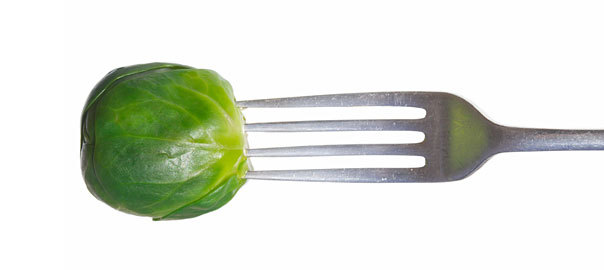Good news finally for folate in food supplement form – folate (also termed folic acid) has been issued with a ‘favourable opinion’ by EFSA (The European Food Safety Authority). Specifically EFSA has issued a favourable opinion on the use of supplemental folate to reduce the risk of neural tube defects (NTD) such as spina bifida and anencephaly in newborn children.
To refresh memories folate (or folic acid) is derived from the term ‘foliage’ which indicates where this vitamin is predominately found – in green leafy vegetables such as broccoli and spinach. Folate is part of the water-soluble ‘B-Complex’ vitamins and Folate is necessary for proper brain function as it is concentrated in the spinal and extra cellular fluids. Folate plays an important role toward the production of RNA and DNA as it helps in the formation of red blood cells and nucleic acids.
Suitable folate levels and folate supplementation is most frequently associated with pregnant women and to a lesser extent breastfeeding women and preconception planning. At Cytoplan we consider Folic acid is vital for the baby during early pregnancy as not only is it needed by the baby for the development of the neural tubes, but also by the mother. Indeed for some time now the UK Department of Health have stated:
“Women who are planning a pregnancy or might become pregnant, or who are already pregnant, should also take folic acid supplement and vitamin D supplements.”
For many years we at Cytoplan and other reputable food supplement companies have been advocating suitable folate levels for women in such circumstances – ideally as part of a multivitamin and mineral supplement specifically formulated for preconception planning, pregnancy and breastfeeding. This opinion has been based on numerous eminent research papers published worldwide over many years.
Frustratingly EFSA ‘the EU risk assessment body for food and feed safety’ have refused to have a range of claims for folate or folic acid approved despite such research and submissions for approval. So we greet this latest news with relief as it is the first step toward being allowed to label such supplements with certain approved health claims.
Back to the good news and a round of applause for the charity Shine as the ‘favourable opinion’ follows submission from the charity plus a collaboration between the Council for Responsible Nutrition (CRN), Health Food Manufacturers’ Association (HFMA) and Proprietary Association of Great Britain (PAGB) with advice from the Department of Health.
Shine (link to their website below) is Europe’s largest charity dedicated to supporting families and individuals affected by spina bifida and hydrocephalus. Shine works with parents who have been told their unborn child has a NTD, and supports people with spina bifida throughout their lives.
The favourable opinion for folate by EFSA is the first step in a formal process. Before the claim is fully permitted for use in the EU it has to be agreed by the member states of the European Union, and put into law by the European Commission. The claim wording suggested by EFSA that reflects the scientific evidence is:
“Supplemental folate intake increases maternal folate status. Increasing maternal folate status contributes to the reduction of the risk of NTD.”
EFSA concluded that In order to obtain the claimed effect, 400 μg of supplemental folate should be consumed daily for at least one month before and up to three months after conception.
This likely recommended daily allowance is similar to the UK Department of Health who suggest that all women who could become pregnant should take 400 micrograms of supplemental folic acid prior to conception, and then for the first 12 weeks of pregnancy.
Many experts would recommend that breastfeeding mothers continue with good levels of folate for some time after birth as the nutritional needs of both mother and baby are high. And with preconception planning good nutrition and health will maximise the chances of conception and as the pregnancy may not be immediately known the baby’s development is well underway once pregnancy has been confirmed.
It is important to note that women identified as having a higher risk of neural tube defects (NTD’s) are advised to take a higher dose of folate. The link below leads to a NHS website page giving more details.
Methylfolate
Methylfolate is emerging as a new and exciting food supplement for anyone who needs to supplement with Folate (also known as Folic Acid). Methylfolate (also known as 5-MTHF and L-Methylfolate) is the most stable, safe and bioeffective form of Folate. it is ideal as a supplement for pregnant women and women planning pregnancy and the form we would recommend.
There is a link to a recent in-depth blog article on folate and Methylfolate below.
If you have any questions regarding Folate (Folic Acid), or any other nutritional/ health matters please do contact me (Amanda) by phone or email at any time.
Amanda Williams
Cytoplan
amanda@cytoplan.co.uk
01684 310099
LINKS:
NHS: Why do I need folic acid in pregnancy? Folic acid for those at higher risk of NTDs
Last updated on 18th November 2020 by cytoffice



Really a brilliant article.went with good information.
Why do they take folic acid together with SP
Hi Addai – please can you clarify what you mean by SP?